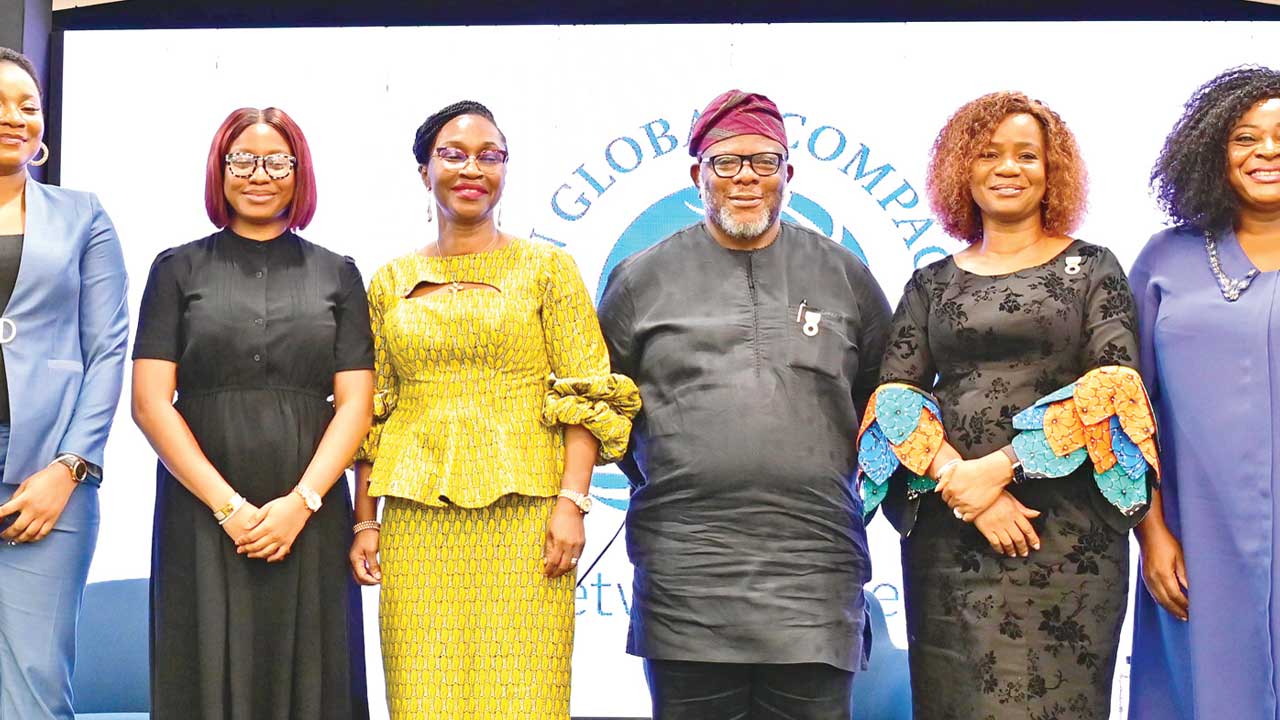
The global agency made the call in Ikoyi, Lagos, during the CEO Breakfast Roundtable with the Assistant Secretary-General and Chief Executive Officer (CEO), UN Global Impact, Sanda Ojiambo, and the launch of the UN Global Compact Africa Strategy.
The high-level meeting attracted major industry players and focused on strengthening partnerships to build strategic opportunities for collaborations in alignment with UN’s Global Compact Africa Strategy 2021-2023 and scale the collective impact of business in delivering the SDGs and AU Agenda 2063.
The UN Global Compact Africa Strategy provides a roadmap to galvanise large and small businesses across Africa to uphold the “Ten Principles.”
It said successful implementation depends on collaboration globally, regionally and locally.
Speaking with The Guardian, UN Resident and Humanitarian Coordinator in Nigeria, Matthias Schmale said Africa Strategy is about galvanizing the private sector to own and invest in the UN system’s sustainable development goals in a sustainable manner. “We know that the private sector is not just an engine for growth for economic development, but an opportunity enabler.
“The strategy is about businesses signing up to that aspect of how to treat the labour force, look into human rights issue, environmental sustainability so, we are hoping through this strategy we will able to engage more private sectors in Nigeria and we also hope that the impacts will be felt in Nigeria and the rest of the continent.
Speaking on the vision of the CEOs round table in the Nigerian local network, the UN scribe said: “We have talked about investment, implementing the SDGs; one area of investment is a sustainable business. We need businesses in Nigeria to revisit what they are doing; they must protect the environment, protect the resources and use the resources in a more sustainable manner. We also want investment into initiatives such as the jubilee fellowship that the UNDP manages within the UN family, which is promoting opportunities for young people to work with companies. The idea is to give them the exposure, to work with private sectors that will become more attractive as a part of the future.
Speaking on what the UN Global Africa Strategy entails, Board member, UN Global Compact, Flora Mutahi, said: “This comes off the UN’s Global 10 principles which talks about the Human Rights, environment, labour and anti-corruption. It is important to localize because Africa has its unique set of challenges, which also bring out a unique set of opportunities. So, for the Africa strategy, we chose five of the SDGs that will make a change for the African continent. When we talk about inequality, it’s actually worse in Africa and this is something we need to lend our voices to make a difference.
“The purpose of the breakfast with the CEOs is to ask them what they can do to make a difference, how they can empower women more, bring more women into leadership, improve the policy which will then drive economic empowerment. Climate action is another area that tends to affect Africa disproportionately. So, we have spoken on how the private sector can speak in one voice to deliver the SDG.
“We only have eight years to vision 2030 so, the whole idea of the Africa Strategy is to help localize it so we could see more ownership because local problems need local solutions. Africa has a lot of hunger and poverty; health is also an area that is very challenged. We have to deploy technology, and different mechanisms to do agriculture in modern technology way.
Speaking on how Nigeria can play a key role in driving increased impact in the coming years, Chief of Intergovernmental Relations and Head, Global Compact Africa Strategy, Olajobi Makinwa said: “The UN Global Compact is about mobilizing businesses. There is a lot of poverty in the country so, what are the private sectors doing? We want to unite Africa and the Nigerian private sector to have more impact. The private sector has a role to play in ensuring that poverty is reduced.
Makinwa who represented Ojiambo added: “We are going to design programmes that are relevant for the continent, we are looking at the specificity on the continent, looking at the challenges and design programmes to make sure we have the impact. We are mobilizing not for talk but for action and impact to ensure that everyone enjoys the full benefits of SDGs. We have a few years for the SDGs, and we need to ensure that we put smiles on the faces of our people.



